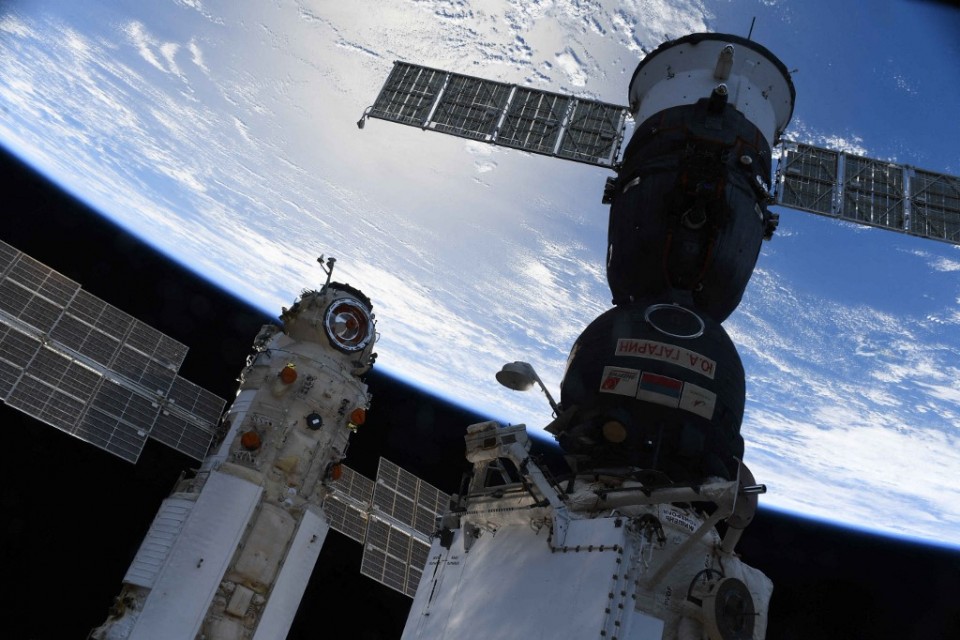
The module started firing “inadvertently and unexpectedly, moving the station 45 degrees out of attitude,” NASA said on Twitter. “Recovery operations have regained attitude and the crew is in no danger,” it added. (Photo by Oleg NOVITSKY / Russian Space Agency Roscosmos / AFP)
MOSCOW, Russia (AFP) — A smoke alarm sounded Thursday in Russia’s segment of the International Space Station (ISS) and astronauts smelled “burning” on board, Russia’s space agency and NASA said.
The incident, which the Russian space agency Roscosmos said happened at 01:55 GMT ahead of a scheduled spacewalk, is the latest in a string of problems to spur safety concerns over conditions on the Russian segment.
“A smoke detector was triggered in the Zvezda service module of the Russian segment of the International Space Station during automatic battery charging, and an alarm went off,” Roscosmos said in a statement.
French astronaut Thomas Pesquet said “the smell of burning plastic or electronic equipment” wafted to the US segment of the station, Russian state news agency RIA Novosti reported, citing a NASA broadcast.
The Russian crew turned on a filter and after the air was cleaned up the astronauts went back to sleep, Roscosmos said.
The space agency said that a planned spacewalk would go ahead as scheduled.
Russia’s Oleg Novitsky and Pyotr Dubrov are scheduled to leave the station to continue work on the Nauka science module that docked in July.
“All systems are operating normally,” Roscosmos said.
The Russian segment of the ISS has experienced several problems recently and a space official warned last month that out of date software could lead to “irreparable failures”.
The Zvezda service module, part of the Russian segment, has experienced several air leaks, including earlier this year and in 2019.
Citing concerns stemming from ageing hardware, Russia has previously indicated that it plans to leave the ISS after 2025 and launch its own orbital station.
In July, the entire ISS tilted out of orbit after the thrusters of the Nauka module reignited several hours after docking.
© Agence France-Presse








